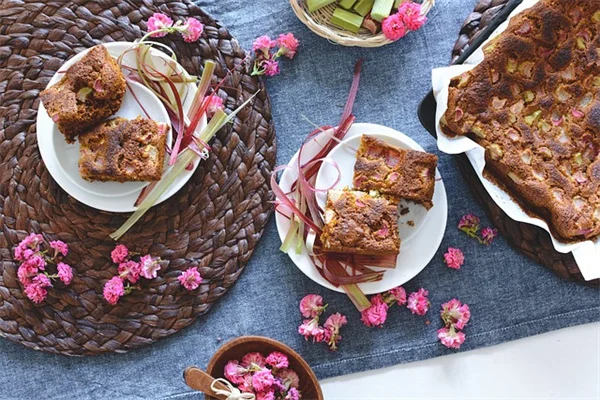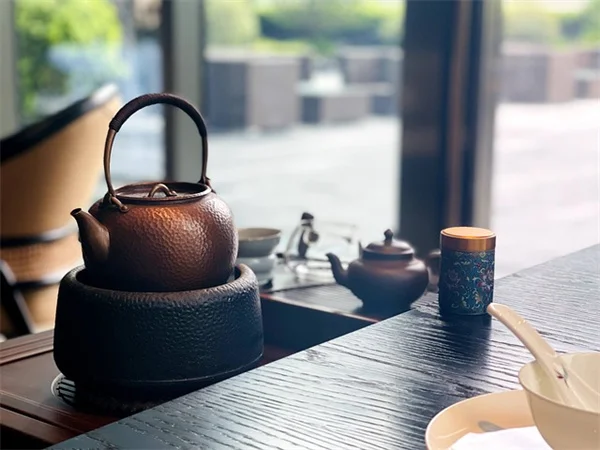Gwyneth Paltrow's Diet Backlash: 5 Reasons Her Liquid-Only Plan Is Unhealthy
Advertisement
Is Gwyneth Paltrow's liquid diet healthy? The answer is clear: No, her restrictive eating plan isn't providing adequate nutrition according to health experts. When the Goop founder revealed she mainly consumes coffee, bone broth, and vegetable juices, nutritionists immediately raised red flags. Here's why: our bodies need balanced meals with proteins, fibers, and essential nutrients to function properly - something her described diet severely lacks.I get why people might be tempted to follow celebrity diets - we all want that red carpet glow. But here's what you should know: what works for a Hollywood star with personal chefs and nutritionists on call often backfires for regular folks like us. The truth is, sustainable health comes from eating real, varied foods - not extreme restriction. In this article, we'll break down exactly why Paltrow's approach misses the mark and what science says about truly nourishing your body.
E.g. :Why Young Americans Are Choosing TikTok Over Doctors for Health Advice
- 1、Gwyneth Paltrow's Controversial Diet: What's Really Going On?
- 2、Why Restrictive Diets Can Backfire
- 3、What a Truly Healthy Diet Looks Like
- 4、The Celebrity Influence Factor
- 5、Building a Positive Relationship With Food
- 6、The Psychology Behind Celebrity Diet Culture
- 7、The Business of Wellness
- 8、Practical Alternatives to Restriction
- 9、Long-Term Health Over Short-Term Results
- 10、Final Thoughts on Food Freedom
- 11、FAQs
Gwyneth Paltrow's Controversial Diet: What's Really Going On?
The Backlash Over Her Eating Habits
When Gwyneth Paltrow shared her daily routine on a podcast, the internet went wild. Can you believe she starts her day with coffee and doesn't eat until noon? Well, here's the thing - our bodies need fuel in the morning to function properly. Skipping breakfast might work for some people, but nutritionists warn it can lead to energy crashes and poor concentration.
Her typical day includes bone broth for lunch and an early paleo dinner, with occasional treats like celery juice. While this might sound "clean" to some, registered dietitians point out it's missing key nutrients. We're talking about fiber for digestion, protein for muscles, and essential vitamins that keep our immune systems strong. That's why experts are calling this approach problematic - it's simply not giving the body what it needs.
The Detox Debate
Paltrow mentioned her body "isn't a natural detoxer." This statement raised eyebrows among health professionals because our bodies actually come with built-in detox systems! Our liver and kidneys work around the clock to filter out toxins - no fancy juices required.
Here's a quick comparison of what Paltrow's typical day looks like versus what nutritionists recommend:
| Nutrient | Paltrow's Diet | Expert Recommendation |
|---|---|---|
| Protein | Minimal (mostly bone broth) | 20-30g per meal |
| Fiber | Very low | 25-30g daily |
| Calories | Extremely restricted | Based on individual needs |
Why Restrictive Diets Can Backfire
 Photos provided by pixabay
Photos provided by pixabay
The Nutrient Deficiency Problem
When we cut out entire food groups or severely limit calories, we're playing a dangerous game. Did you know that prolonged nutrient deficiencies can lead to serious health issues? We're talking about weak bones, hormonal imbalances, and even cognitive problems down the road. That's why nutritionists get so concerned when they see diets like Paltrow's gaining attention.
The human body is like a high-performance machine - it needs quality fuel to run properly. Imagine putting watered-down gas in a Ferrari and expecting it to perform well. That's essentially what happens when we don't give our bodies the nutrients they need. We might look thin on the outside, but our internal systems are struggling to keep up.
The Mental Health Connection
Restrictive eating doesn't just affect our physical health - it takes a toll on our minds too. When we're constantly thinking about what we can't eat, it creates stress and anxiety around food. This can spiral into full-blown disordered eating patterns that are hard to break.
I've seen friends get caught in this cycle - they start with good intentions, but soon they're skipping social events because they're afraid of "bad" foods. Food should bring us joy and nourishment, not stress and isolation. That's why balance is so much more sustainable than extreme restriction.
What a Truly Healthy Diet Looks Like
The Mediterranean Approach
If you're looking for an eating pattern that actually has science backing it up, check out the Mediterranean diet. It's not about deprivation - it's about abundance of good stuff! We're talking colorful vegetables, whole grains, healthy fats like olive oil, and plenty of fish. The best part? There's room for enjoyment and flexibility.
Here's what a balanced plate might include:
- Half the plate filled with vegetables (the more colors, the better)
- A quarter with quality protein (fish, chicken, beans)
- A quarter with whole grains or starchy veggies
- A drizzle of healthy fat (olive oil, avocado)
 Photos provided by pixabay
Photos provided by pixabay
The Nutrient Deficiency Problem
Instead of overhauling your entire eating pattern overnight (which rarely sticks), try making small, manageable changes. Could you swap white bread for whole grain? Add an extra vegetable to dinner? Drink more water throughout the day? These little shifts add up over time without leaving you feeling deprived.
Remember that guy who lost weight by simply switching from soda to water? Small changes work! The key is finding adjustments you can maintain long-term, not quick fixes that leave you hungry and frustrated. Your future self will thank you for building healthy habits that last.
The Celebrity Influence Factor
Why Star Diets Aren't One-Size-Fits-All
When a celebrity like Gwyneth Paltrow shares her eating habits, it's easy to think "if it works for her, it'll work for me." But here's the reality - celebrities often have teams of nutritionists, personal chefs, and trainers helping them. Their lifestyles are completely different from most of ours.
What works for a movie star preparing for a role might be disastrous for an office worker or student. Our bodies have different needs based on our activity levels, metabolism, and health status. That's why copying someone else's diet rarely leads to sustainable results - it's not tailored to you!
Red Flags to Watch For
How can you tell if your eating habits are becoming problematic? Watch for these warning signs:
- Constantly thinking about food or calories
- Feeling guilty after eating certain foods
- Isolating yourself from social events involving food
- Experiencing mood swings related to eating patterns
At the end of the day, food is about nourishment and enjoyment - not punishment or perfection. Your worth isn't determined by what you eat or how much you weigh. Focus on how foods make you feel rather than following arbitrary rules set by celebrities.
Building a Positive Relationship With Food
 Photos provided by pixabay
Photos provided by pixabay
The Nutrient Deficiency Problem
Instead of following strict diet rules, try tuning into your body's signals. Are you actually hungry, or just bored/stressed? What foods give you energy versus making you feel sluggish? This intuitive approach helps create a healthier relationship with food over time.
I remember when I first tried this - it was weird at first after years of dieting. But gradually, I learned that my body actually craves vegetables when I'm truly hungry, not just when I'm "being good." Our bodies are smarter than we give them credit for!
The 80/20 Rule
One approach that works for many people is the 80/20 rule - eating nutritious foods 80% of the time while allowing flexibility 20% of the time. This means you might have a salad for lunch but enjoy pizza with friends on Friday night. Life's too short to never eat cake at birthday parties!
The beauty of this approach is that it removes the "good food/bad food" mentality. Instead of feeling guilty about "cheating," you recognize that all foods can fit into a healthy lifestyle. This balanced perspective makes healthy eating much more sustainable in the long run.
Remember, health isn't just about what you eat - it's about how you move, sleep, manage stress, and connect with others. A truly healthy lifestyle encompasses all these elements, not just the number on your plate. So next time you see a celebrity diet trend, take it with a grain of (Himalayan pink) salt!
The Psychology Behind Celebrity Diet Culture
Why We're Drawn to Extreme Diets
Ever wonder why restrictive celebrity diets grab our attention so easily? Our brains love quick fixes and dramatic transformations - it's like watching a magic trick where someone drops 20 pounds in a month. But here's what they don't show you: the nutritionist visits, personal trainers, and sometimes dangerous shortcuts behind the scenes.
Social media amplifies this effect with perfectly staged "what I eat in a day" videos. We see the aesthetic results without witnessing the fatigue, mood swings, or health consequences. That's why it's crucial to remember these are curated highlights, not realistic blueprints for healthy living.
The Role of Food in Self-Worth
Many of us unconsciously tie our food choices to moral value - "good" when we eat salad, "bad" when we have dessert. This black-and-white thinking creates unnecessary guilt and shame around eating. Food has no moral value - it's just fuel and pleasure!
I've noticed when friends break their "perfect" diet with one cookie, they often spiral into "I've already ruined it, might as well eat the whole box." This all-or-nothing mindset makes balanced eating nearly impossible. The healthiest eaters I know enjoy treats without guilt and move on.
The Business of Wellness
How Companies Profit From Diet Trends
Behind every celebrity diet, there's usually a product to sell. Did you know the global wellness industry is worth over $4.5 trillion? That's trillion with a T! From detox teas to collagen supplements, companies bank on our desire for quick results and celebrity endorsements.
Here's a sobering comparison of costs:
| Product | Celebrity Version | Basic Healthy Alternative |
|---|---|---|
| Morning Juice Cleanse | $15 per bottle | $0.50 (whole fruits/veggies) |
| Protein Powder | $60 per tub | $5 (chicken breast) |
| Detox Tea | $40 per box | $2 (green tea bags) |
Spotting Marketing Gimmicks
Next time you see a "miracle" product, ask yourself: Would this exist without celebrity backing? Real nutrition doesn't come in fancy packaging with a famous face. The healthiest foods are often the simplest - think fresh produce, whole grains, and lean proteins that our grandparents would recognize.
I fell for these traps too until I realized my $50 "superfood" powder had the same nutrients as a $3 bag of spinach. Now I save my money for actual groceries and occasional treats - balance that makes both my body and wallet happy!
Practical Alternatives to Restriction
Gentle Nutrition Principles
Instead of cutting foods, try adding more good stuff. Your body naturally crowds out less nutritious choices when you prioritize nourishing foods. For example, when I started eating protein-rich breakfasts, my afternoon candy cravings disappeared without any willpower battles.
Here's what adding (not subtracting) can look like:
- Extra veggies in your pasta sauce
- Handful of nuts with your afternoon snack
- Glass of water before coffee in the morning
Making Peace With All Foods
The healthiest people I know don't ban foods - they enjoy everything in moderation. When we label foods as "off-limits," we actually increase cravings for them. That's why the strictest dieters often end up binge-eating their forbidden foods.
Try this experiment: Allow yourself to eat anything, but check in with how different foods make you feel. You might notice you naturally want less sugar when it's not restricted. Our bodies are pretty smart when we stop fighting them!
Long-Term Health Over Short-Term Results
Shifting Our Success Metrics
We need to stop measuring health by weight alone. How about energy levels, workout performance, or even just feeling comfortable in your clothes? These are far better indicators than any number on a scale.
I have a friend who "failed" every diet but discovered rock climbing and completely transformed her body composition - while eating more than ever! Her secret? Focusing on performance and joy rather than restriction.
The Power of Consistency
Small, daily healthy choices create bigger transformations over time than any 30-day cleanse. Think of health as a marathon, not a sprint. Drinking enough water today won't change your life - but doing it every day for years absolutely will.
That's why I stopped chasing dramatic before-and-after stories. My health journey now looks like consistently choosing veggies, moving my body in ways I enjoy, and not stressing over the occasional indulgence. This balanced approach has given me better results than any extreme diet ever did.
Final Thoughts on Food Freedom
Trusting Your Own Wisdom
At the end of the day, you know your body better than any celebrity or influencer. Those morning hunger cues? That afternoon slump after certain meals? These are valuable messages from your body, not failures of willpower.
Start viewing food as information rather than morality. Each choice teaches you something about what works for your unique body. This mindset shift makes healthy eating feel empowering rather than restrictive.
Creating Your Own Definition of Health
Health looks different on everyone. For some it's running marathons, for others it's playing with kids without getting winded. Define what being healthy means to you personally - not what a magazine cover or Instagram post says it should look like.
My version includes having energy for my hobbies, stable moods, and enjoying meals without guilt. Yours might be completely different - and that's perfectly okay! The most important thing is finding sustainable habits that make you feel your best, not mimicking someone else's extreme routine.
E.g. :Gwyneth Paltrow: Why Experts Label Her Diet as 'Disordered Eating'
FAQs
Q: Why are health experts criticizing Gwyneth Paltrow's diet?
A: Nutritionists are sounding the alarm because Paltrow's described eating pattern lacks essential nutrients our bodies need daily. Here's the breakdown: her routine of coffee, bone broth, and minimal solid food doesn't provide enough protein for muscle maintenance, fiber for digestion, or sufficient calories for energy. Experts warn this could lead to nutrient deficiencies, hormonal imbalances, and even long-term health issues like osteoporosis. What's more concerning is that when celebrities promote these extreme diets, it can influence vulnerable followers to adopt similarly restrictive habits. The bottom line? Our bodies thrive on variety and balance - not deprivation.
Q: Can a liquid-only diet help with detoxing like Paltrow claims?
A: This is one of the biggest myths about restrictive diets. Our bodies come with built-in detox systems - our liver and kidneys work 24/7 to filter out toxins naturally. You don't need special juices or extreme cleanses to "detox." In fact, nutritionists say these approaches often do more harm than good by depriving your body of essential nutrients it needs to power these natural detox processes. Instead of following Paltrow's approach, focus on eating plenty of fiber-rich foods and staying hydrated - that's what truly supports your body's natural cleansing abilities.
Q: What are the warning signs that a diet is too restrictive?
A: Watch out for these red flags: constant fatigue, obsessive thoughts about food, skipping social events because of meal anxiety, or feeling guilty after eating. If your eating pattern leaves you feeling weak, irritable, or constantly hungry, it's probably too restrictive. Other warning signs include rapid weight loss, hair thinning, or irregular periods (for women). Remember, food should energize you - not leave you feeling deprived. If you're experiencing several of these symptoms, it might be time to reassess your approach with a registered dietitian.
Q: What's a healthier alternative to Paltrow's restrictive diet?
A: Nutritionists overwhelmingly recommend the Mediterranean diet as a sustainable, science-backed approach. Here's why it works: it focuses on abundance rather than restriction, including plenty of vegetables, whole grains, healthy fats, and lean proteins. Unlike Paltrow's plan, it provides all the nutrients your body needs while still being enjoyable. The best part? It includes room for flexibility - you can occasionally enjoy treats without guilt. This balanced approach leads to better long-term health outcomes than any extreme, restrictive diet ever could.
Q: How can celebrities influence eating disorder risks?
A: When high-profile figures like Paltrow share extreme eating habits, it can validate dangerous behaviors for vulnerable individuals. Celebrities often don't realize their influence - what they describe as "just how I eat" can be interpreted as health advice by followers. This is particularly concerning for young people or those predisposed to eating disorders. Studies show exposure to celebrity diet culture can trigger or worsen disordered eating patterns. That's why health professionals urge public figures to be more responsible when discussing their eating habits and to emphasize the importance of professional guidance for nutrition advice.


